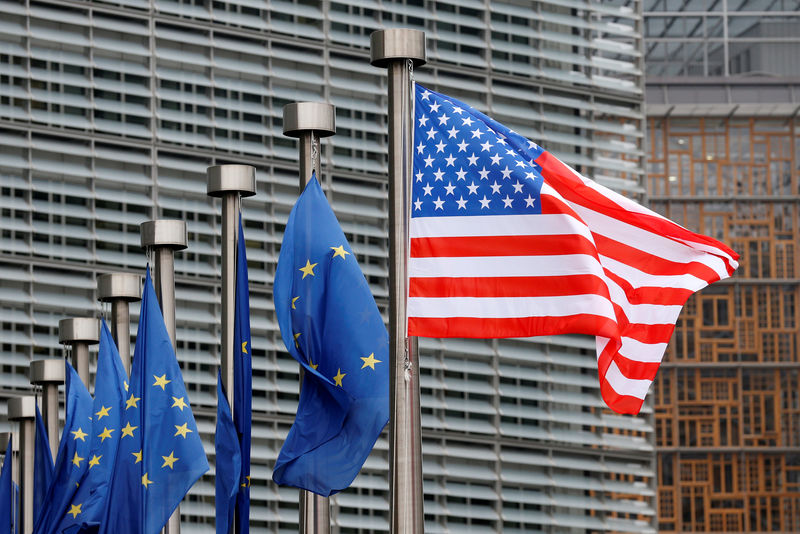Two National Guard members shot near White House
Investing.com -- The eurozone economy could be hit significantly harder by U.S. trade tariffs than the European Central Bank (ECB) initially projected, and the disruption may also weigh on inflation in the short term, Reuters said in a Wednesday report, citing four sources familiar with the matter.
Last month, the ECB estimated that a trade conflict would shave 0.5 percentage points off euro zone growth in the first year and temporarily push inflation higher by a similar margin if the EU responded with its own tariffs.
However, the actual measures announced by U.S. President Donald Trump have turned out to be more damaging than those used in the ECB’s original forecasts. Sources reportedly told Reuters that ECB staff have been tasked with updating the projections, which are expected to be presented to policymakers at their April 17 meeting.
The report said the earlier estimate now appears too conservative, with one suggesting the economic hit could exceed 1 percentage point, especially when factoring in rising uncertainty and weaker business confidence. That scale of impact would effectively erase this year’s projected growth, which currently stands at around 1%.
While the immediate effect of weaker activity is likely to put downward pressure on prices, the report said. But some reportedly cautioned that a shift toward more fragmented global trade could result in higher structural inflation over time.
The European Commission said earlier this week it had proposed a “zero-for-zero” tariff arrangement in an effort to avoid a trade war with the United States, while EU ministers backed prioritizing talks with President Donald Trump’s administration.
At the same time, the bloc moved ahead with a 25% tariff on select U.S. goods in response to U.S. steel and aluminium duties.
The EU faces a wave of tariffs starting Wednesday, including 25% levies on steel, aluminium, and autos, and 20% tariffs on nearly all other exports under Trump’s policy targeting countries with what he considers unfair trade practices.
In its initial response, the European Commission outlined retaliatory tariffs focused on Washington’s metals duties. But the list was later narrowed after member states raised concerns over possible U.S. retaliation.
Bourbon, wine, and dairy products were removed after Trump threatened steep counter-tariffs on EU alcoholic beverages—prompting pushback from France and Italy, key exporters of wine and spirits.
